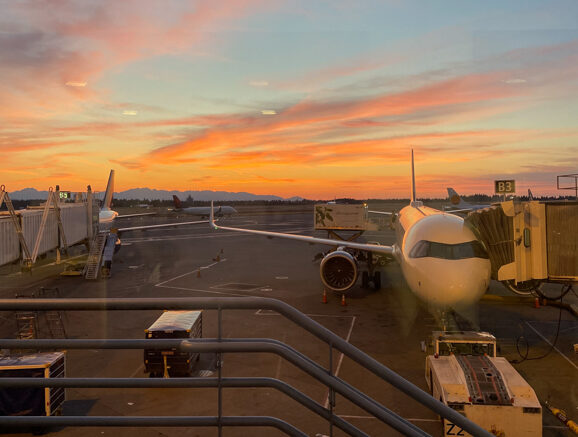By Kendall Younkman
Accessibility has been a problem in the Deaf community for years.
At the airport, I always inform the flight employee at the desk that I’m Deaf so one of them can assist me, tell me the gate number and inform the flight attendant so they can be aware that there is a Deaf passenger on the plane.
A few times when I landed in the state that I was traveling to, the airline would have an employee standing there in the passenger boarding bridge with a wheelchair and my name on it.
I would tell the employee, Hello, that is me, but I never asked for a wheelchair. I can walk fine, look at me walking.
So, I did that, and they realized I could walk, just like everyone, but just couldn’t hear.
Years later with the number of Deaf people growing in this generation, airports have finally improved their accessibility for Deaf people.
This meant closed captioning and announcements on the TV screen were now available.
Other options were also made available under special assistance such as “Deaf/Hard of Hearing”, then they would ask if I needed assistance or not.
The system is improving as the Deaf community is growing.
In the past, people in society would label Deaf people as handicapped, however, handicapped is considered an offensive word in the Deaf community.
Handicapped means that a person has a condition where they can’t function in a way to be able to walk, communicate, or do many things, which is not true.
Deaf and handicapped have two different meanings. Deaf just simply means a person cannot hear with one ear or both. It does not mean they cannot function to walk or communicate with others.
Just because Deaf people cannot hear, does not mean that they are unable talk. Every Deaf person has a different way of communicating with others.
Some deaf people were raised orally while half percent of Deaf people would prefer using sign language or both.
A study conducted by the United States Government Accountability Office showed that there was a 54% disability-related complaint increase since 2019 and that in 2019 about 27 million passengers with disabilities traveled by air.
This shows that there are more deaf people who rely on accommodations to travel.
In the past, there was a lack of accessibility for deaf passengers. When Deaf passengers booked flight tickets online, they had no options to select special assistance accommodations.
A Deaf person used to have to go to the front desk to inform them that they are Deaf.
The flight attendant would then immediately ask to bring a wheelchair without asking a passenger whether they need it or not.
Deaf people often feel offended because it is how flight attendants will hear the word “Deaf”, and immediately change the word to handicapped.
Delta is one of the best airlines and has the best accommodations for people with disabilities including the Deaf community as well. American Airlines is the second best, and other airlines are improving their accommodations slowly.
However, I used SouthWest airlines and had no problem, except for closed captioning issues.
I sometimes would rely on asking another passenger sitting right next to me what the announcement was. Most of the passengers who I talked to were very nice and helpful.
The airlines are slowly improving their accommodations for people with disabilities as the rate of people with disabilities is growing.
The airport system can do better than they are. All flight attendants and employees need to be educated and trained on how to treat people with disabilities.
Yes, things in this generation are getting better, but the system is not 100 percent better yet. The only issues that airports need to improve are how they make announcements and having closed captioning applicable for all airlines, not just Delta in order to make it more accessible for Deaf passengers.



Be the first to comment on "The Deaf community faces accessibility issues at airports"